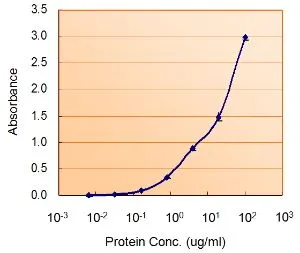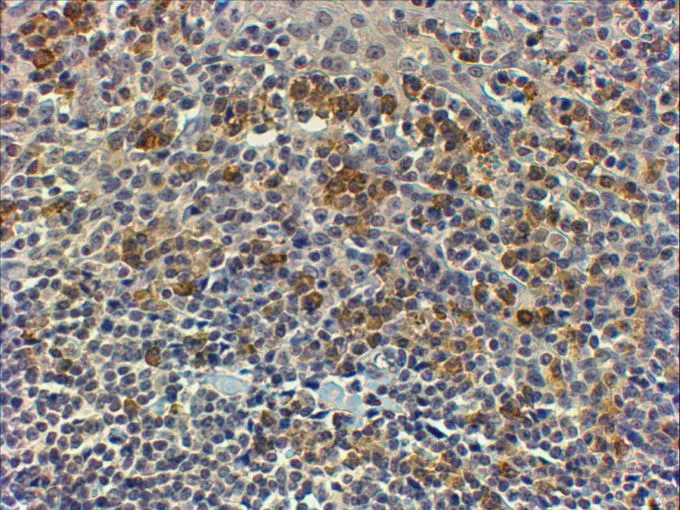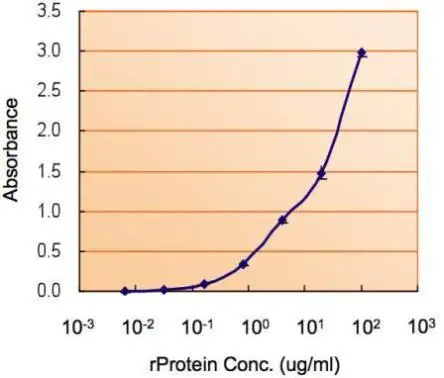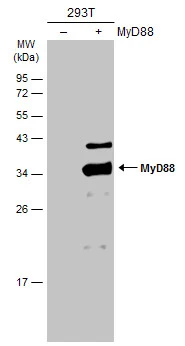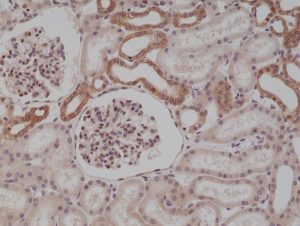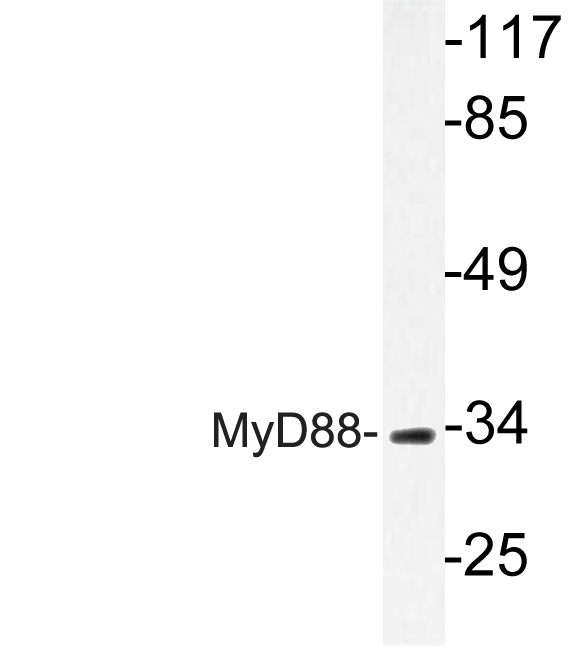
WB analysis of human thymus lysate using GTX89605 MyD88 antibody, Internal. Dilution : 0.2μg/ml Loading : 35μg protein in RIPA buffer
MyD88 antibody, Internal
GTX89605
ApplicationsWestern Blot, ELISA, ImmunoHistoChemistry, ImmunoHistoChemistry Paraffin
Product group Antibodies
ReactivityHuman
TargetMYD88
Overview
- SupplierGeneTex
- Product NameMyD88 antibody, Internal
- Delivery Days Customer7
- Application Supplier NoteWB: 0.1-0.3microg/ml. IHC-P: 4-6microg/ml. *Optimal dilutions/concentrations should be determined by the researcher.Not tested in other applications.
- ApplicationsWestern Blot, ELISA, ImmunoHistoChemistry, ImmunoHistoChemistry Paraffin
- CertificationResearch Use Only
- ClonalityPolyclonal
- Concentration0.50 mg/ml
- ConjugateUnconjugated
- Gene ID4615
- Target nameMYD88
- Target descriptionMYD88 innate immune signal transduction adaptor
- Target synonymsIMD68, MYD88D, WM1, myeloid differentiation primary response protein MyD88, TLR adaptor MYD88, mutant myeloid differentiation primary response 88, myeloid differentiation primary response 88, myeloid differentiation primary response gene (88)
- HostGoat
- IsotypeIgG
- Protein IDQ99836
- Protein NameMyeloid differentiation primary response protein MyD88
- Scientific DescriptionThis gene encodes a cytosolic adapter protein that plays a central role in the innate and adaptive immune response. This protein functions as an essential signal transducer in the interleukin-1 and Toll-like receptor signaling pathways. These pathways regulate that activation of numerous proinflammatory genes. The encoded protein consists of an N-terminal death domain and a C-terminal Toll-interleukin1 receptor domain. Patients with defects in this gene have an increased susceptibility to pyogenic bacterial infections. Alternate splicing results in multiple transcript variants. [provided by RefSeq, Feb 2010]
- ReactivityHuman
- Storage Instruction-20°C or -80°C,2°C to 8°C
- UNSPSC12352203

